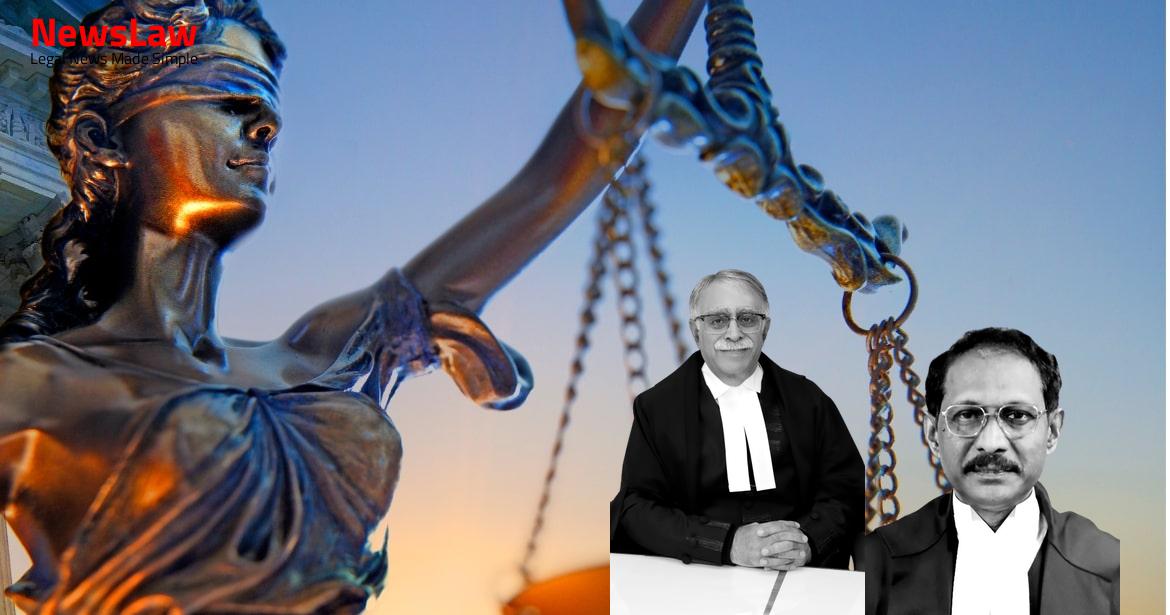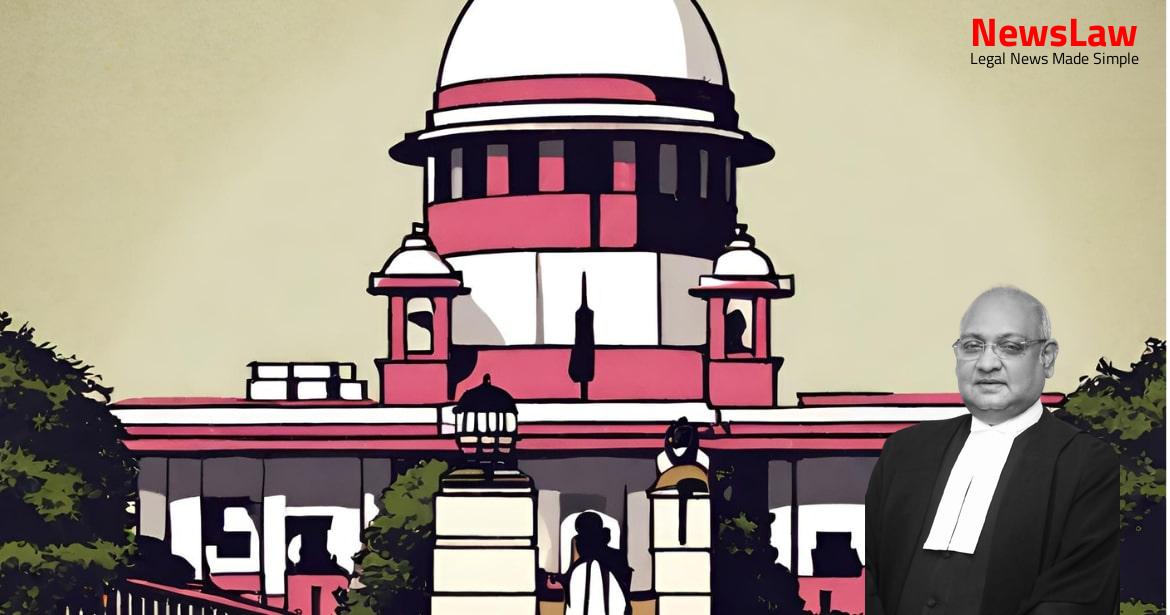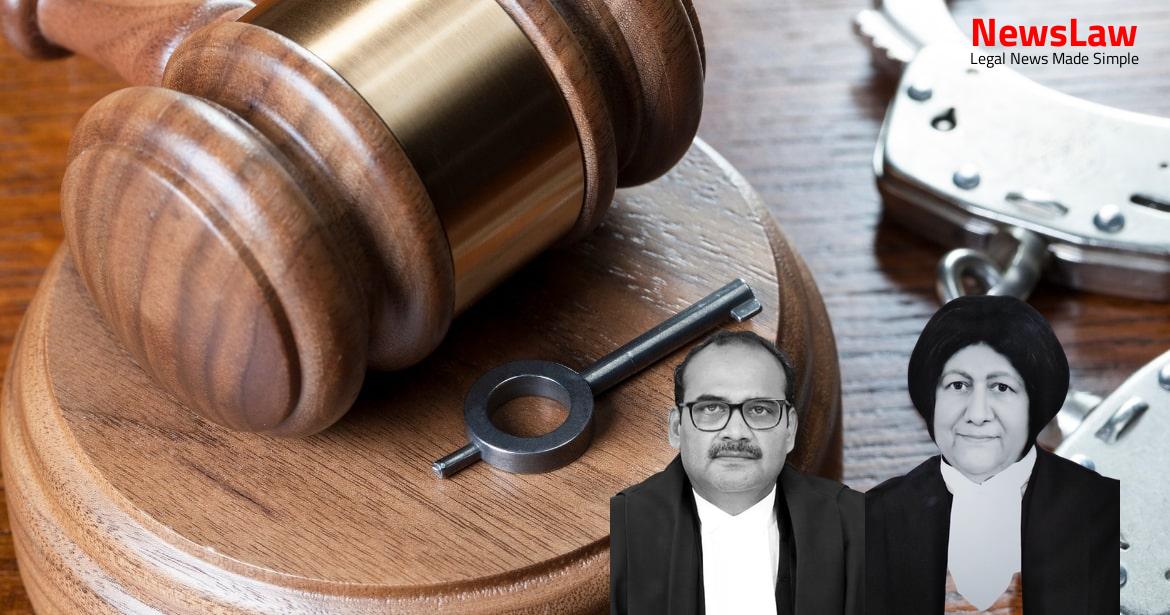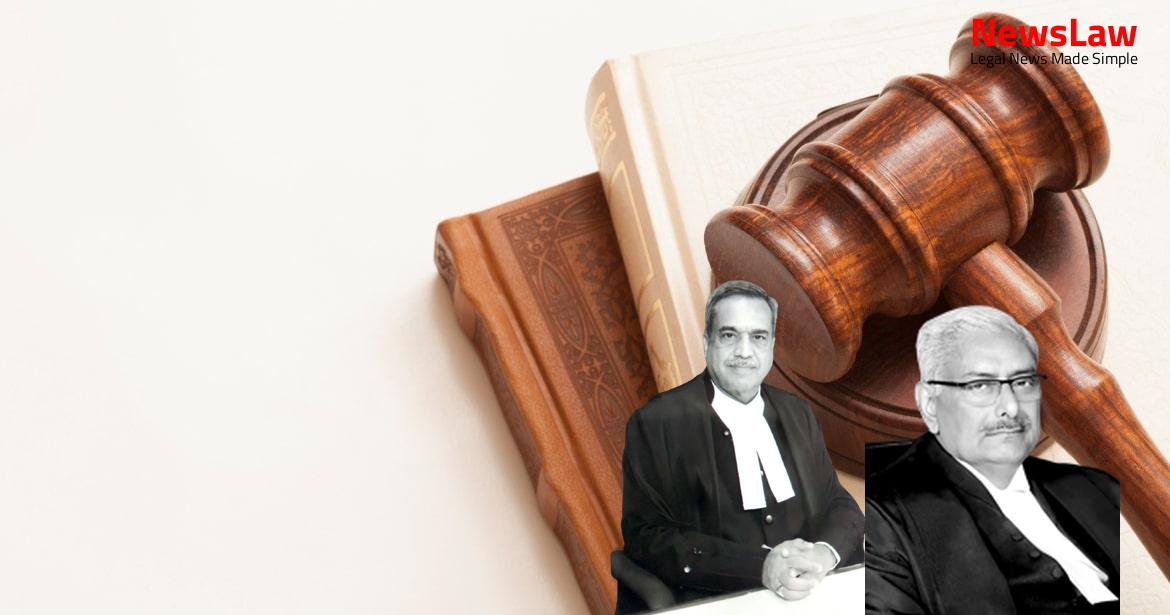In a significant ruling by the Supreme Court of India, a legal victory was secured by M/s. Baijnath Choubey & Co. The judgment marks a pivotal moment in the case, setting a precedent for future legal proceedings. Stay tuned to learn more about the details and implications of this landmark decision.
Facts
- The Court found contradictions in the reasoning of the Trial Court regarding the service of a legal notice and the establishment of the landlord-tenant relationship.
- The First Appellate Court overturned the Trial Court’s findings and ruled in favor of the plaintiff-appellants.
- The First Appellate Court dismissed cross-objections due to delay and timing of submission.
- The High Court, in its judgment dated 24 August, 2023, permitted the appeal and reversed the decision of the lower courts.
- Plaintiff-appellants discovered that one of the trustees of the respondent did not exist, indicating potential fraud.
- Allegations made by plaintiff-appellants include illegal induction of a sub-tenant by the respondent.
- The Suit filed by plaintiff-appellants was initially dismissed by the Trial Court.
- Baijnath Choubey, a tenant in part of the premises, had the tenancy in the name of M/s. B.N. Choubey and Company.
- Upon Baijnath Choubey’s death, a Trust was formed to care for his son who was in an asylum at Agra.
- The alleged Trust continued business activities after the son’s and daughter’s deaths.
- Plaintiff-appellants accused the trustees of the respondent of forming an illegal partnership with Sarbottam Das Mundra and Chetandas Mundra.
- Title Appeal No 14/2018 was filed by plaintiff-appellants against the Trial Court judgment.
- The respondent filed a cross-objection on 08.07.2019.
Also Read: Landmark Judgement on Woman’s Property Rights: Stridhan Case Summary
Issue
- The Court held that the defendant has sublet the suit premises and is liable to be evicted from the same.
- The High Court of Calcutta in Second Appeal admitted the appeal on the questions of law regarding the impleadment of M/s. Baijnath Choubey and company as the sole defendant and the liability of the suit to be dismissed for non-joinder of necessary party.
- It was found that the impleadment of M/s. Baijnath Choubey and company as the sole defendant in the plaint was correct, and the suit was not liable to be dismissed for non-joinder of necessary parties.
Also Read: False Affidavit Allegations: Upholding Justice in the High Court of Uttarakhand
Analysis
- The High Court did not follow the procedure of formulating substantial questions of law at the time of admission of the second appeal.
- The High Court erred in overturning the findings of the First Appellate Court without proper grounds.
- The jurisdiction of the High Court under Section 100 CPC is limited to cases involving substantial questions of law, which must be framed at the time of admission of the second appeal.
- The trade name and a partnership firm cannot be considered as juristic persons.
- The plaintiff cannot maintain a suit without impleading the trustees of the trust created by the original tenant.
- The absence of evidence to support the claim of sub-letting renders the decree questionable.
- The High Court’s observation that the Order of the First Appellate Court is based on no evidence requires further examination.
- The High Court framed substantial questions of law related to necessary parties and non-joinder of such parties in the suit.
- The High Court’s finding that the Order of the First Appellate Court is based on no evidence needs to be revisited.
- The decision of the First Appellate Court is deemed erroneous and should not be upheld.
- The duty of the High Court to frame substantial questions of law before hearing an appeal under Section 100 of the CPC.
- Second appeal must be heard and decided on substantial question of law.
- Judgment rendered by the High Court under Section 100 CPC without following the procedure cannot be sustained.
- Judgment in Narayanan Rajendran v. Lekshmy Sarojini emphasizing the curtailed scope of Section 100 after the 1976 Amendment.
- Reference to Gajendra Narain Singh v. Johrimal Prahlad Rai on the appearance of a person served with summons as a partner of a firm.
- High Court did not provide reasons for departing from the substantial questions of law framed during admission or in the impugned order
- High Court focused on the issue of sub-letting of the suit premises leading to setting aside of the decree by the First Appellate Court
- No specific questions were framed regarding lack of evidence or incorrect appreciation of facts by the First Appellate Court
Also Read: Landmark Judgment in Matrimonial Discord: Setting Aside Onerous Bail Conditions
Decision
- The civil appeal is allowed.
- No order as to costs.
- The impugned judgment is set aside on the ground of overturning the finding of fact of the First Appellate Court without framing a substantial question of law.
- Any pending applications are disposed of.
- Any dues up until the date of occupation shall be borne by the respondent-defendant.
- The judgment and order dated 24 August, 2023, by the High Court of Calcutta is set aside.
- The judgment and order dated 12 December, 2019, by the City Civil Court at Calcutta stands affirmed.
- The respondent-defendant is directed to hand over vacant physical possession of the suit property by 31.12.2024.
Case Title: RASHMI KANT VIJAY CHANDRA Vs. BAIJNATH CHOUBEY AND COMPANY (2024 INSC 688)
Case Number: C.A. No.-010545-010545 – 2024



